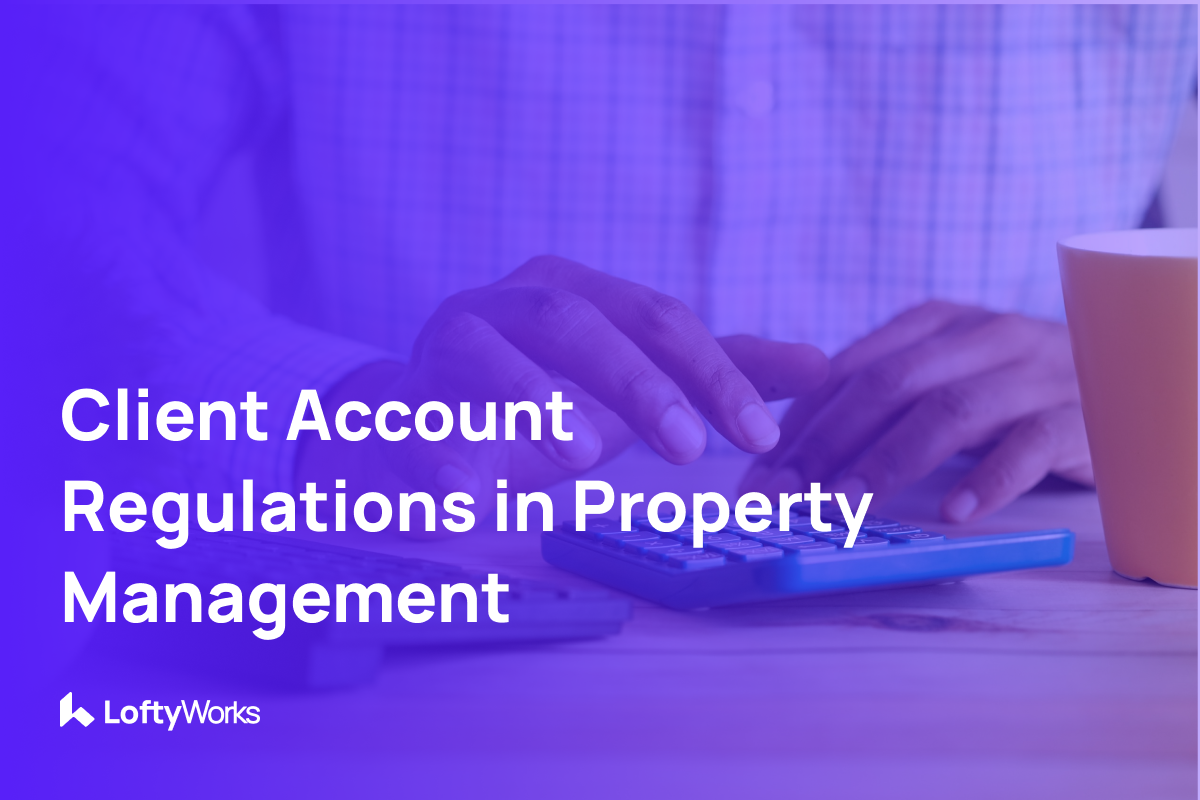Client Account Regulations in Property Management: What You Need to Know

In the dynamic world of property management within the lettings sector, adherence to client account regulations is of utmost importance. These regulations aim to safeguard client funds, ensure transparency, and maintain the highest standards of financial management. Property managers must be well-versed in the specific client account regulations that govern their industry. This article provides an overview of key considerations and obligations regarding client account regulations in the property management field of the lettings sector.
Segregation of Client Funds:
According to CASS 5.5 Segregation and the operation of client money accounts, one of the fundamental aspects of client accounting regulations is the segregation of client funds. Property client accountants are required to keep client funds separate from the other operational funds. This segregation serves to protect client funds in the event of insolvency or misappropriation by the property management company. Property managers can ensure greater transparency and accountability by maintaining separate client accounts and avoiding the commingling of client funds with their own assets.
Trust Accounts:
Many jurisdictions require property management companies to utilize trust accounts when handling client funds. Trust accounts provide an additional layer of security and oversight. These accounts are typically held by a regulated financial institution or a third-party custodian. The use of trust accounts ensures that client funds are held separately from the property management company’s accounts and are safeguarded in accordance with strict regulatory requirements. Property managers must comply with the guidelines and restrictions associated with trust accounts to maintain compliance with client account regulations.
Account Documentation:
Accurate and comprehensive documentation is a crucial aspect of client accounting. Property managers are obligated to maintain proper records and documentation pertaining to client accounts. This includes:
– detailed account opening documents,
– client identification information,
– tenancy agreements,
– rental payments,
– deposit receipts, and
– any communication or correspondence related to client funds.
These records should be organized, readily accessible, and retained for the prescribed period as per regulatory requirements. Proper documentation not only ensures compliance but also assists in efficient financial management and audit processes.
Client Funds Handling:
Property managers have a fiduciary duty to handle client funds responsibly and in accordance with client account regulations. This means:
– promptly depositing client funds into designated client accounts,
– keeping accurate records of income and expenditure,
– and conducting regular reconciliations to ensure the accuracy of financial transactions.
The client accountants must maintain sufficient financial controls and implement robust accounting systems to prevent the misuse or misappropriation of client funds. Compliance with these regulations will not only promote transparency and trust but also help to minimize the risk of financial irregularities.
Reporting and Compliance:
Property management companies, including letting agents, have reporting obligations to regulatory authorities to demonstrate their compliance with client account regulations. These reports serve as evidence that the property management company is effectively managing client funds and adhering to the prescribed guidelines. The specific reports that client accountants working for letting agents may need to submit can vary based on the jurisdiction and regulatory requirements. However, some common types of reports include:
Balance of Client Accounts:
There is typically a requirement to provide periodic reports that outline the balance of client accounts. This report should detail the current status of each client’s funds held in trust, including any outstanding amounts owed to clients or any amounts held as security deposits.
Transactions:
Accountants also need to report on the transactions that occur within client accounts. This includes documenting all income received, such as rental payments, as well as any expenses or disbursements made on behalf of clients. The report should provide a clear overview of the financial activity within the client accounts.
Rental Income:
Property management companies often have to report on the rental income generated from the properties under their management. This report should provide a breakdown of the rental income received from each property, including details such as the rental amount, the period covered, and any associated fees or charges.
Disbursements:
Often there is a need to submit reports that outline the disbursements made from client accounts. This includes expenses incurred on behalf of clients, such as property maintenance costs, repairs, insurance premiums, or any other authorized expenditures. The report should clearly specify the nature of each disbursement and the corresponding property or client account it relates to.
Communication and Transparency:
Effective communication with clients is essential in maintaining transparency and trust in client account management. Property managers and client accountants should proactively communicate with clients and provide:
– regular statements or reports detailing the status of clients’ accounts,
– income received,
– expenses incurred, and
– any deductions made.
Inform clients about any changes in client account regulations that may impact fund management. Maintaining clear and open communication fosters a strong client-manager relationship and ensures clients are well-informed about the financial aspects of their property investments.
Outsourcing Client Accountancy
Rentancy offers a comprehensive list of services, among which – client accounting services.
Client Accounting Services:
-
Rent collection
-
Process contractor payments
-
General accounts query handling
-
Process landlord payments
-
Producing and sending landlord statements
-
Manage property expenses & invoices
-
In-arrears chasing
-
Monthly KPI reporting
-
Revenue Assurance
Interested in our help? Please, email us at sales@loftyworks.com or message us on WhatsApp at +44 330 321 3500.


